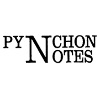Abstract
Since Lyotard, it has been a commonplace view that postmodernity is characterized by the death of grand narratives and the corresponding generation of a fragmented culture in which narratives and stories proliferate and in which meaning disappears in the face of Jean Baudrillard's hyperreal postmodern condition. Since Ihab Hassan and Fredric Jameson, the fiction of this postmodernized culture has also been seen as fragmented, characterised by metafictional strategies and the self-reflexive aleatory play of language often associated with texts such as those by Gass, Sorrentino, Federman and Barth, amongst others. This flattening out of culture and its products, however, causes problems for many theorists of postmodernity, particularly Jameson, because of the paradoxes that arise around the question of ideology and power. If "reality" is a depthless chain of signifiers and simulacra, then, as both Baudrillard and Arthur Kroker conclude, there is no ideology: how can the "real" human relations ideology conceals be hidden in a culture where everything is on show as a spectacle?
How to Cite:
Mason, F., (1998) “"Just a Bunch of Stuff That Happened": Narratives of Resistance in Gravity's Rainbow”, Pynchon Notes , 167-180. doi: https://doi.org/10.16995/pn.147
Downloads:
Download PDF

